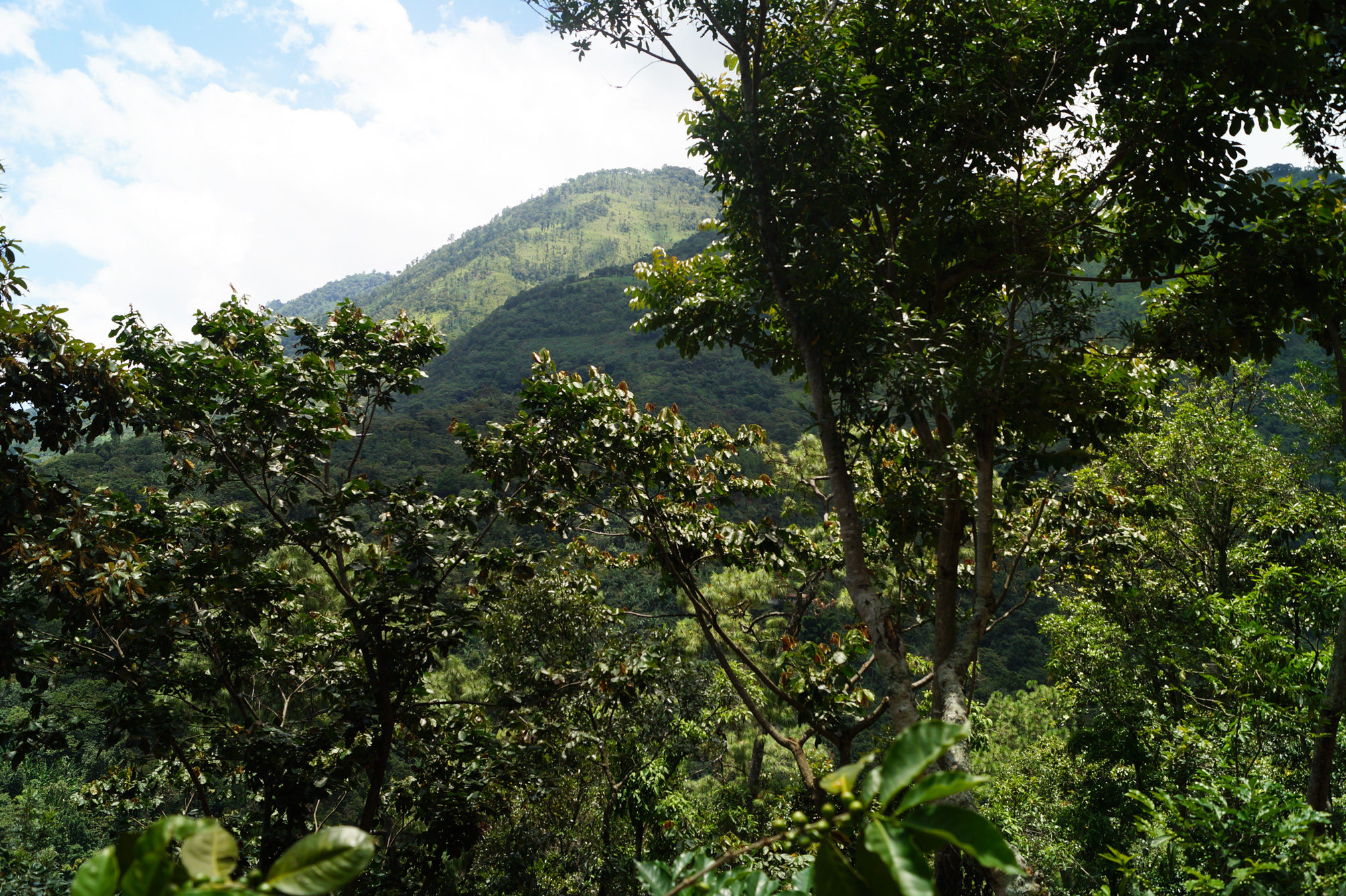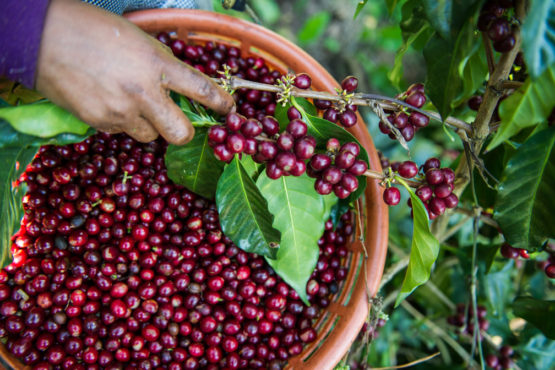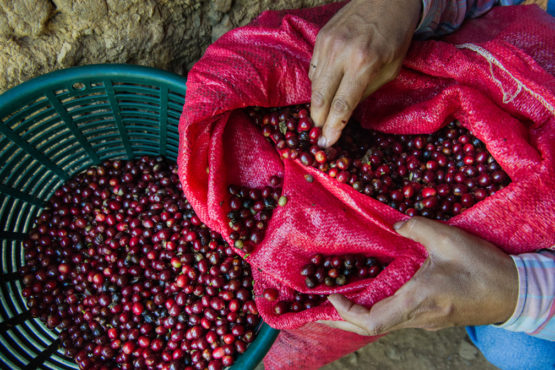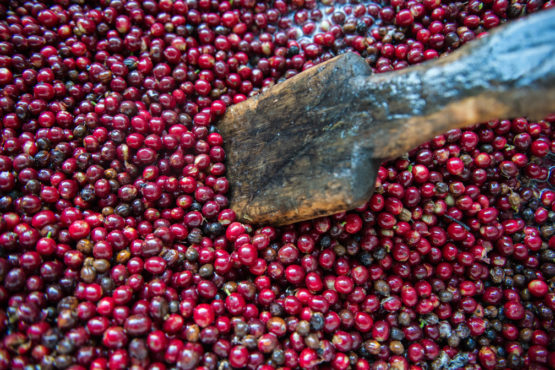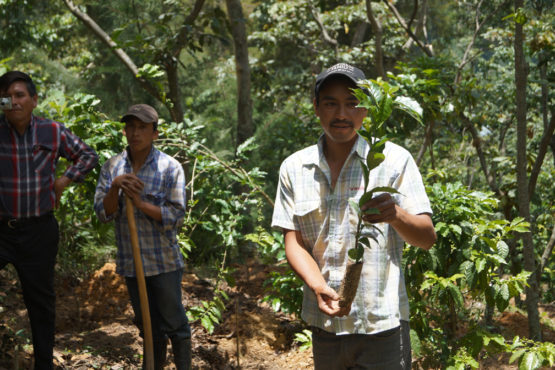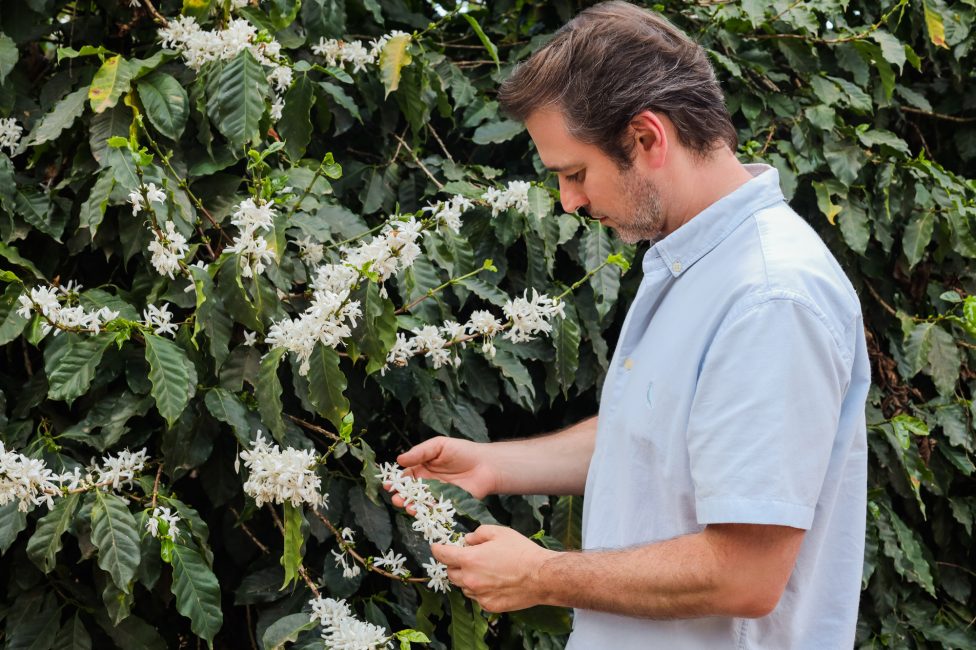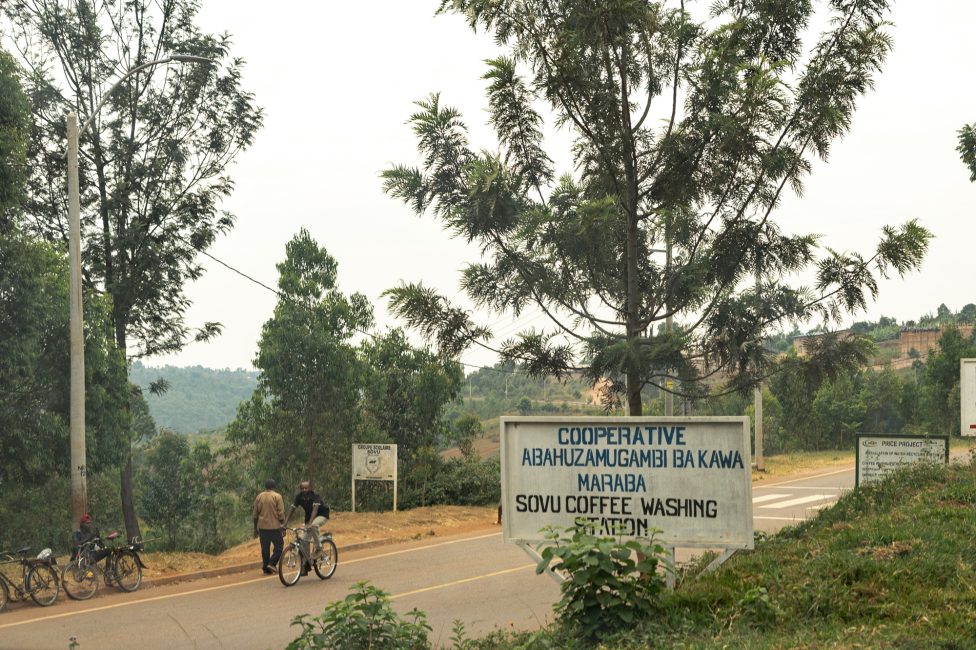San Pedro Necta (Organic)
Floral and transparent, with sparkling orange acidity, and notes of peach, berries, kiwi and honeydew melon, as well as jasmine and oolong tea.
A steep road ascends the side of El Tapón Mountain in Guatemala’s remote Huehuetenango Department, rising finally to the town of San Pedro Necta. San Pedro Necta municipality, which lies across the verdant hills surrounding the town centre, is dotted with producers who own small plots of land and grow coffee as their primary source of income.
Unlike the other side of mountain, in the West of HueHuetenango, agriculture around San Pedro Necta is mostly certified organic, as the surrounding community has chosen sustainable production practices as one of the ways to differentiate themselves and to remain competitive in this famous coffee-producing region. These aims are supported by the local organization, the Association of Integrated Development of San Pedro Necta (ASODESI), which represents around 140 farmers from the surrounding area.
This coffee was produced the small producers of ASODESI, most of who are whom are Indigenous Mam-Maya, a historically marginalised group in Guatemala. Collectively the members farm around 250 hectares in total which are located at altitudes of 1,400 – 1,800m above sea level. The predominant varieties grown by members are Bourbon, Paché and Caturra.
ASODESI provides a variety of services to its members and the wider community, from health services and education through to access to agricultural inputs and training. In recent years, sustainable production practices have become increasingly difficult to pursue, as many of the members of ASODESI are adapting to the changing climate cycles of the region, in which the intense rainy season is increasingly highly variable. When the rain comes too late, it can create a delay in the maturation process of cherries that have already withstood a long period of stress during the hot summer typical of the area. For this reason protecting shade and soil biodiversity has become critical. Additionally, the association has provided training in seedling preparation, including the application of organic fertilisers such as mulch, compost and manure. These fertilisers help create a foundation for healthy, productive and long-term organic agriculture.
ASODESI not only helps with technical assistance in the field but also provides social services to members. The Association’s concept of ‘sustainability’ is very much based in both a commitment to the protection of the environment and the equal distribution of social and financial profits amongst all members. Overall, the goal is to contribute to their members’ well-being while supporting the municipality and wider Department with a strong, anti-poverty strategy.
